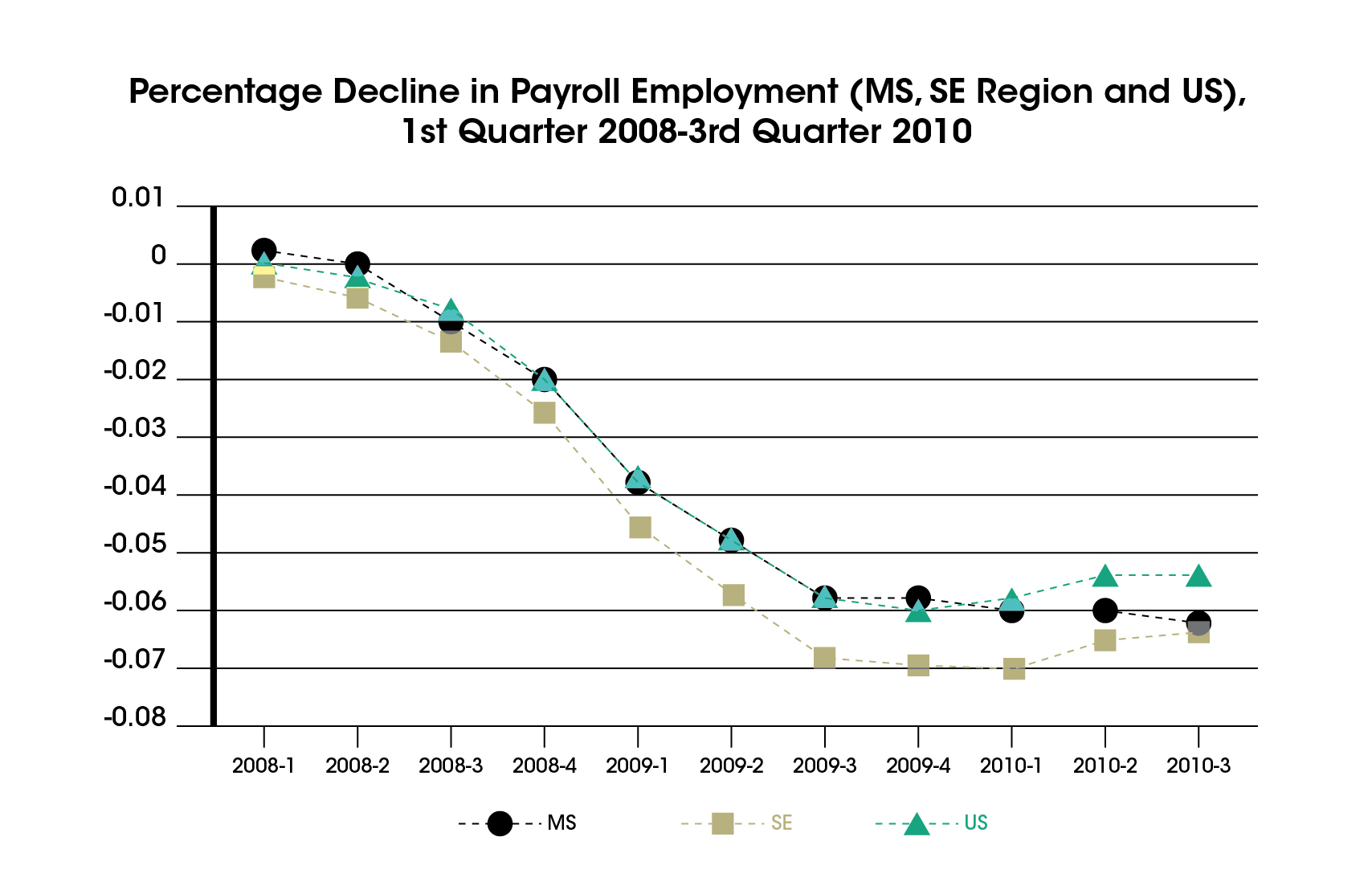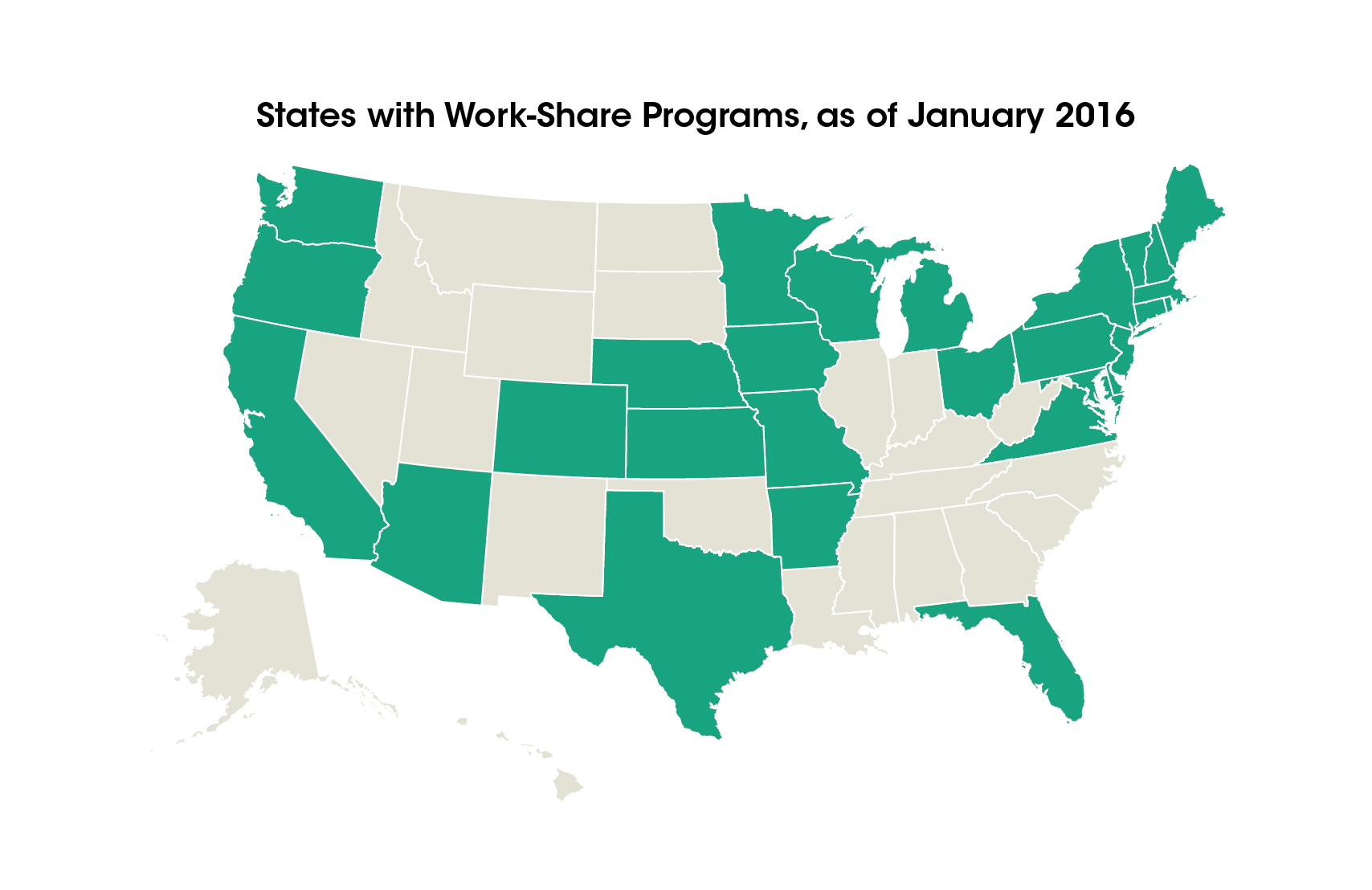Weathering the Storm with Work-Share Programs
January 25th, 2016
Job loss in the recession hit Mississippi and the Southeast region harder than the rest of the United States, costing workers and families wages, economic security, and peace of mind. Weathering economic shocks in the future means pursuing innovative solutions to secure jobs and workers’ livelihoods during economic downturns.
Source: The Great Recession: Mississippi Compared to the South Eastern Region. Bureau of Labor Statistics data, analysis by Bob Neal, Ph.D.
Poor business conditions threaten company solvency, meaning they often opt to trim their workforce in hopes of balancing budgets and staying afloat. This choice has obvious drawbacks for workers, yet employers can also feel the sting. Letting an employee go means letting the experience and expertise that employee provides go as well, a trade-off that can threaten the business in the long-term.
Innovations, such as work-share programs, provide a tool to mitigate the effects of economic downturns on businesses and families. Under a work-share program, an employer feeling the pinch can reduce the hours of its workforce by 20% (i.e. from 40 hours a week to 32) or simply retain them for a 4-day work week rather than 5 days. Affected workers then receive partial unemployment benefits (proportionate to their weekly wage and percent of hours reduced) to make up for lost income. The program is voluntary which means employers can choose whether a work-share program will fit their strategic business needs.
Work-share programs benefit workers, businesses, and states.mWorkers keep their jobs and benefits rather than being laid off and collect partial unemployment benefits to compensate for lost hours and wages. Businesses can retain their skilled workforce, keeping them handy to scale up to full-time work when economic conditions stabilize. And finally, the state manages to save money by paying only partial unemployment claims to work-share participants rather than full benefits to laid-off workers without negatively impacting the overall state unemployment insurance fund.
*Nebraska and Virginia enacted work-sharing laws and Oklahoma repealed its work-sharing laws in 2014
Source: Center for Law and Social Policy and the National Employment Law Project. Work-Sharing: An Alternative to Layoffs. November 2013
Despite their potential, work-share programs have gained little traction in the south, the very same region which took such a large hit in terms of job loss during the recession. Planning ahead this legislative session can aid workers and businesses by helping them work better together through economic uncertainty. Giving employers the freedom to navigate business contractions and avert layoffs through work-sharing preserves industry productivity and ensures employees can continue supporting their families. By exploring options to adopt a voluntary state-tailored work-share program, the state will be positioned to support Mississippi workers and businesses weather another economic storm.









